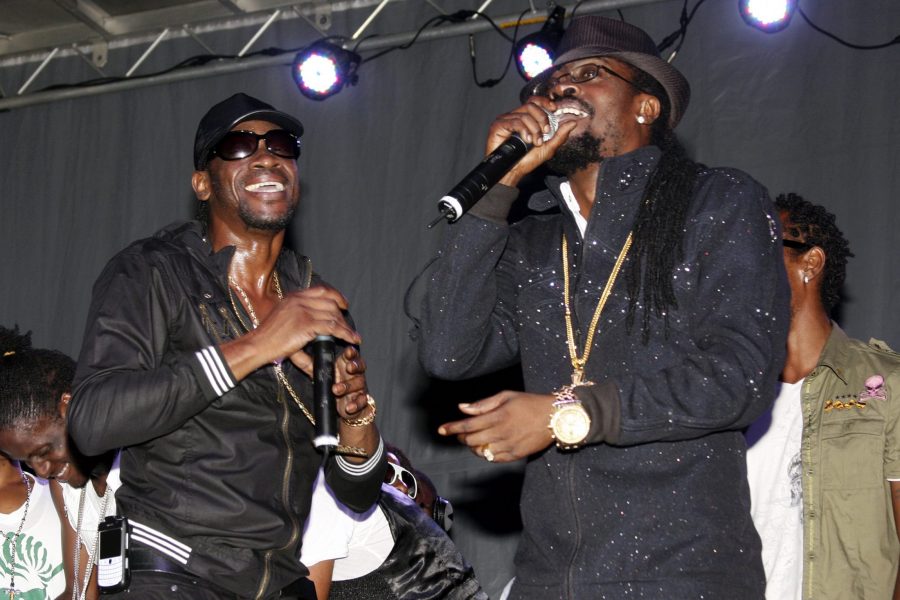Beenie Man Ready To Re-enter The US Market If Given The Chance

It’s an issue that has been plaguing Jamaican artistes for decades, and one veteran dancehall artiste, Beenie Man, is hoping that his recent Verzuz battle with Bounty Killer will help to change Jamaican artistes’ access to the US to perform.
It’s been almost a decade since the pair was allowed to perform in the US.
In 2010 Beenie Man, Bounty Killer, Mavado, Aidonia, and veteran selector Ricky Trooper, had their visas revoked by the US Embassy, and an advisory was issued to airlines to prohibit them from boarding any flights to the country. Mavado and Aidonia were later allowed to travel to the country again.
Following the hugely successful battle last Saturday, May 23, other entertainment figures, like Shaggy, have been calling for more Jamaican artistes, especially Beenie Man and Bounty Killer, to be granted the necessary permission to perform in the US. If anything, Verzuz proved just how popular Dancehall is in the US, as the show brought in close to 500 000 views and, according to organizer Swizz Beatz, more than a billion impressions for ‘Brand Jamaica’.
The Girls Dem Sugar singer, whose real name is Anthony Moses Davis, spoke with the Jamaica Star about trying to get permission to perform in the US, something he said his fans had been requesting for many years. He said this demand also extends to Bounty Killer, whose real name is Rodney Price.
The issue has also prevented some big names in Dancehall, like Popcaan and Tommy Lee Sparta, from entering the country to market their music. Beenie Man believes Dancehall would do extremely well if he and other artistes are given a chance to represent.
“We coulda go all 50 states and represent Dancehall again. Me wah sold-out Madison Square Garden again, me wah go LA go lock it dung again, and me sure Bounty wah do the same,” Beenie told THE STAR.

Beenie also believes that he shouldn’t have lost his visa in the first place and added that he’s thankful for all the support that has been pouring in from social media.
“That would be great. I shouldn’t have lost the visa in the first place. I don’t know what the reason was, but America is America … If dem decide say yuh cannot go, there’s nothing much you can do about it. If dem (US Embassy) feel it in mind that we deserve to get it back, me woulda appreciate it,” he said.
Many US musicians have covered some of his popular work, and he believes that Dancehall has positively impacted the musical landscape of the US, another reason he believes it’s time for him to reenter the US market with live performances.
“Our era in music, a it foreign still a sing enuh, a it dem still a listen to. People cover Zim Zimma thousands of time so yuh mus understand say foreign nuh really move from we yet. Dem still deh a di ’90s music and I think that is because of our love for the music and the work ethic. People see and feel our passion for the music from dem time deh till now,” he continued to tell The STAR.
He also felt it was a bit unfair to him as he put in a lot of work in the early days of his career to deliver consistent Dancehall. Comparing the 90’s to now, he said it was much easier to make music nowadays.
“Nowadays a man can inna him bathroom, make a album and him a di biggest thing inna di world, and so the music a nuh the same. The work did have more love and more feeling and more meaning, and that’s why the music lasts,” he said.
Beenie is one of many dancehall musicians who have been denied visas as the seek to ply their trade. It’s an issue that the Jamaica Federation of Musicians and Affiliated Unions (JFMAU) and the Jamaica Reggae Industry Association (JaRIA) have said that they simply can’t do anything about.
In fact, Rory Frankson, who is the chairman of the COVID-19 Response at the JFMAU is quoted in THE STAR as saying: “To my knowledge, there is nothing we can do other than provide a form of reference. Consular services are totally controlled by the foreign embassy’s rules/protocols. We do act as a type of reference for musicians who apply for work visas from embassies, verifying that they are practitioners in the entertainment industry.”
That reference seems about as far as their influence goes as their President, Ewan Simpson, is also quoted as saying: “At the end of the day, if the USA, in particular, decides to exercise its jurisdiction to grant or not grant a visa, there is little our government can do and even less that an industry association that doesn’t wield economic power can do.”
The hope is that the Verzuz battle has highlighted the fact that Dancehall has fans around the world, including the US, and that it may be time to allow Jamaican artistes the space and permission to help the genre keep growing.
